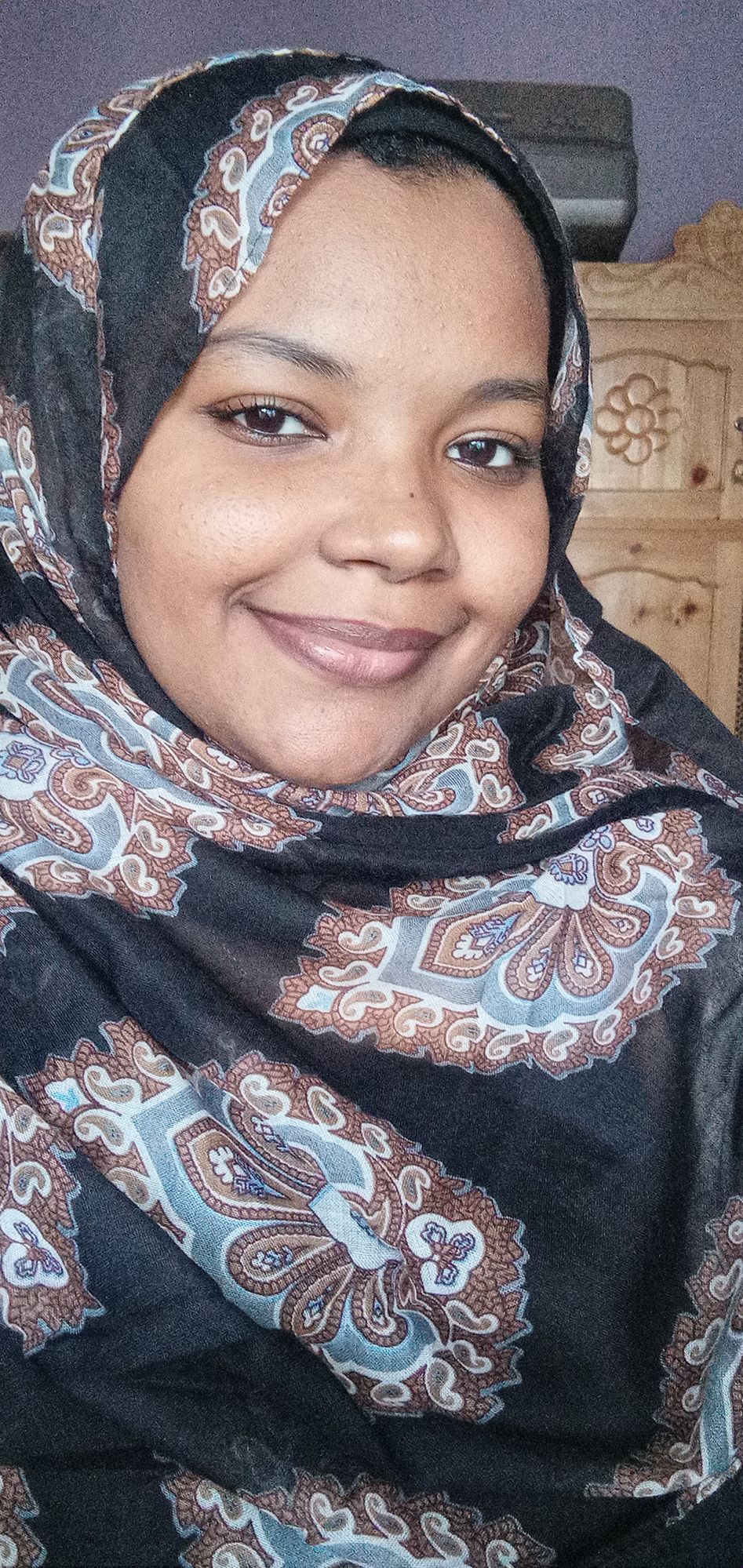When War in Sudan’s capital forced the 16 years old twins Ola and Amro, Sudanese high school certificate students, to leave their home in Shambat, North Khartoum, and travel to Port Sudan, they held on to the thought that it was a matter of time before everything settles again. They carried their books along but a year on, those same books lie dormant, huddled in a box in the corner of their rooms, whispering uncertainties about the day they will be re-opened.
Like Ola and Amro, an estimated 19 million children in Sudan are out of school according to UNICEF, as the brutal war between the Rapid Support Forces and Sudanese Armed forces continues for over a year, with a staggering 11 million individuals displaced, both inside and outside Sudan. According to the IOM it is now considered to be the largest displacement crises globally.
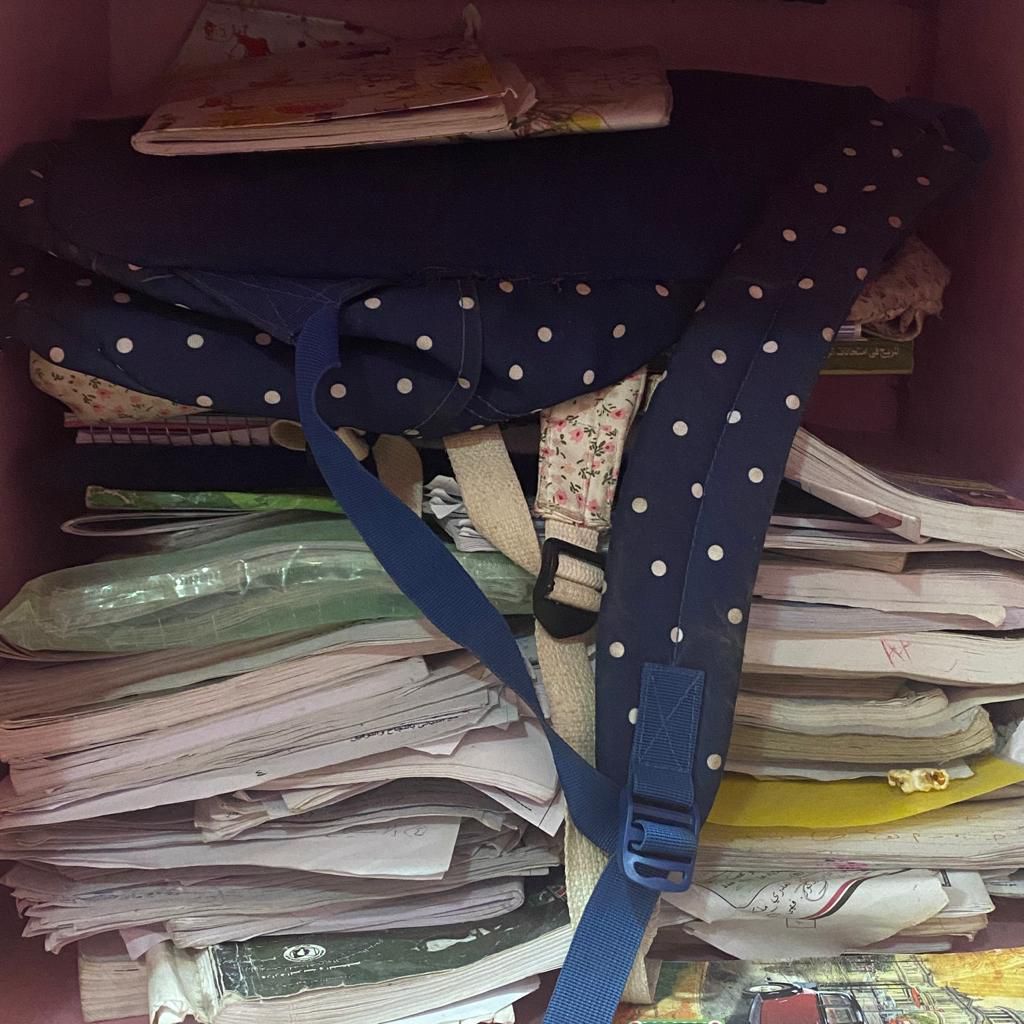
The abandoned books of Ola and Amro. Source: Rania Elhassan Ahmed
The Heavy Toll on Education
Sadly, the situation of education in Sudan has been catastrophic for the past few years, as the academic years was stopped several times for political, environmental, and medical reasons, like the start of the 2018 revolution, and the 2019 ousting of former president Omar Elbashir. There is also the 2021 coup, unusually heavy floods in 2020, and the coronavirus pandemic. The ongoing war has denied children and young students their right to education and ripped them off from their normal track of learning.
Many government and private higher education institutions in Sudan, as well as research centers and public/private universities, were affected, like Al Neelin University, Ahfad University in the city of Omdurman, Sudan University of Science and Technology, and Al Jazeera University. The destruction was strongly condemned by the Ministry of Higher Education and Scientific Research, which emphasized the costs of war in general and on education overall; causing school-withdrawals, and shortage of qualified and skilled employees who contribute to economic growth, innovation and nation-building.
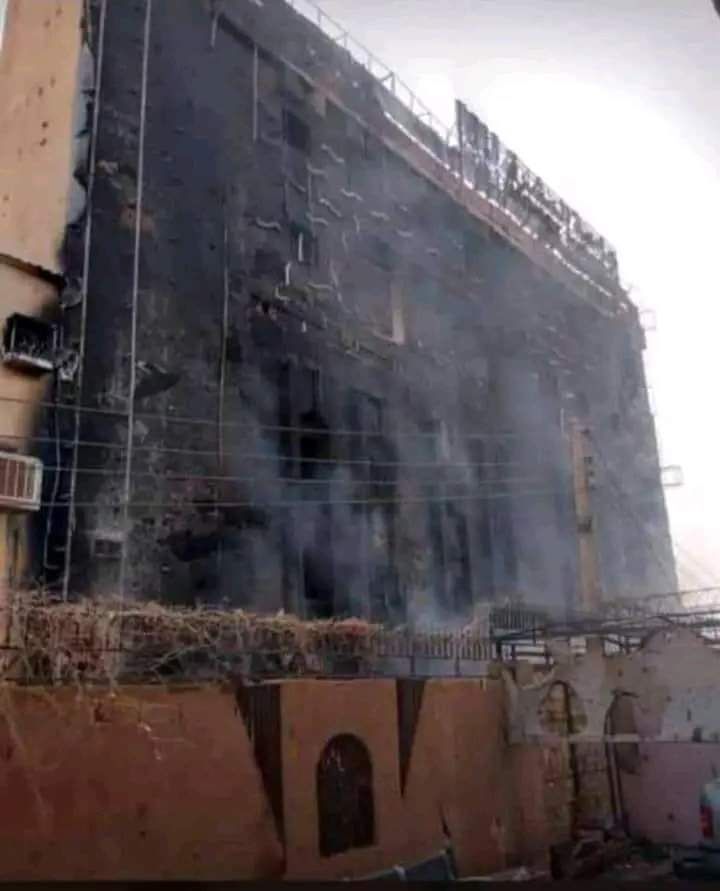
Almashriq University in North Khartoum that was burned. Source: Sky News Arabia
Another Face of War
Sudanese faced many obstacles in escaping the war and fleeing to neighboring countries. Traveling from Sudan to neighboring countries like Egypt was not as easy after the destruction of Khartoum International Airport and the cancellation of all flights. There is still a large number of Sudanese trying to cross by land, but the Egyptian authorities have tightened border controls. Sudanese women and children are required to carry entry visas which was not mandatory pre-war. Many Sudanese are stranded in border towns facing the unknown.
As the fight between the RSF and SAF persists, students are grappling with the challenge of pursuing their education amidst the turmoil. Mohammed Eissa, a third-year university student from Kordofan, sheds light on the hard journey he undertook to secure a spot on the entry visas list for Egypt at the Egyptian Council in Port Sudan. Describing the exhausting process, he recounts how individuals would endure days of waiting outside the embassy, waiting to obtain their entry visas. The constant fear looms that they may miss their opportunity to complete their academic applications in Egypt, due to the uncertainties surrounding their entry into the country.
“The costs of university registration fees escalated and it placed a significant financial burden on students, expenses reached thousands of dollars. However, despite the considerable financial investment required, there is no guarantee that students will be able to enter Egypt promptly to finalize their procedures in time’’ Mohammad says.
Rofayda, a determined nursery teaching student, had successfully secured admission to a university in Egypt. However, her academic journey faced a significant setback as she was compelled to suspend her first academic year. The long procedures in Sudan due to the war made her renew her passport and await the processing of her entry visa, consuming valuable time in the process. These unavoidable delays stopped Rofayda's educational progression, underscoring the challenges students encounter due to administrative complexities and procedural obstacles.
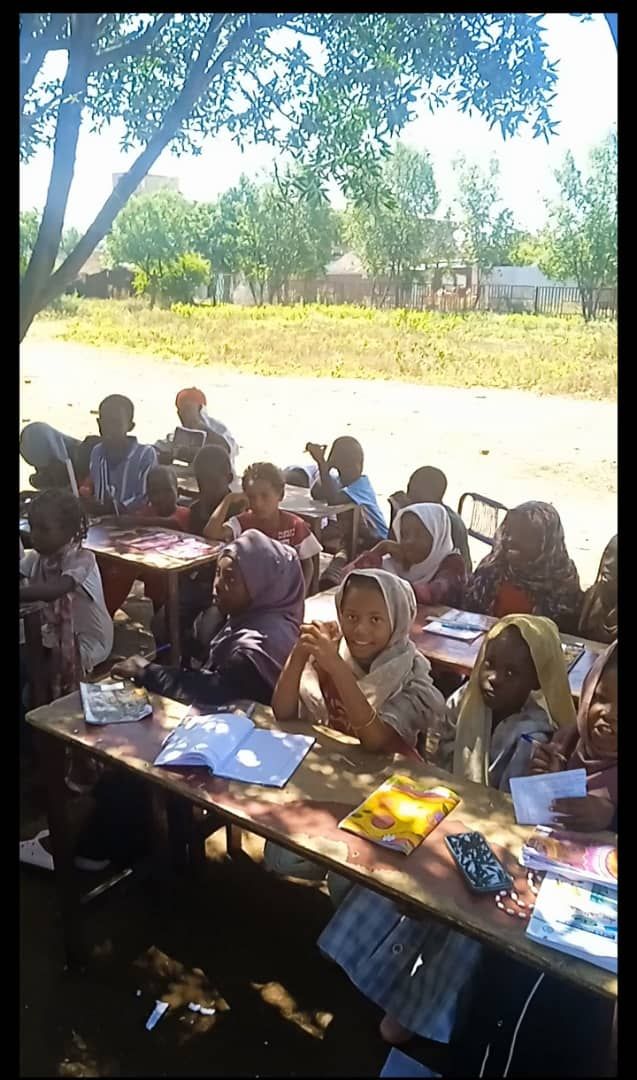
The catastrophic conflict events have denied children and university students access to education services and limited the potential of entire generations. Source: Esraa
Mustafa, a 20-year-old civil engineering student at Karari University, was seeking academic scholarships to resume his studies elsewhere outside Sudan, but unfortunately due to the ongoing war, the British Council suspended all operations including ILETS examinations, depriving him and those seeking funding and better education from completing the language certificate required in scholarship applications.
Some universities that were located in conflict zones, like the University of Khartoum resumed studies through E-learning, and some universities like the University of Medical Sciences and Technology relocated their students to other countries. Despite the efforts of administrators to resume the academic year, it encounters significant obstacles due to the increasing spread of war in various cities, limited internet connectivity, and the challenges posed by the displacement of students. These obstacles present barriers to the success of reinstatement of academic proceedings, highlighting how challenging it is to return to normalcy in educational institutions amidst such circumstances.
Light at the End of the Tunnel?
In the coastal city of Port Sudan, young Adan, aged just 13, has harnessed her creativity and innovative spirit, her interest in crafting intricate accessories from beads has blossomed into a successful business, marking a remarkable achievement at such a tender age.
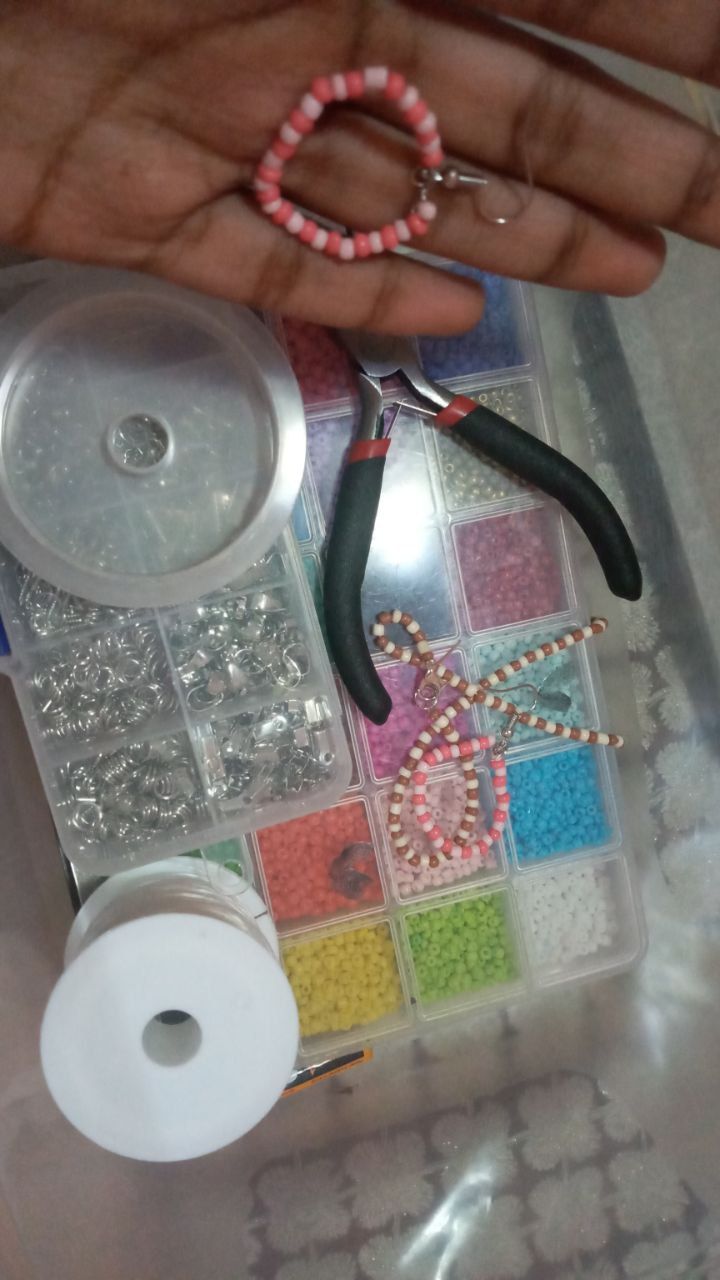
Adan showed us her accessories making kit. Source: Rania Elhassan Ahmed
Beside her, Fatima, her elder sister, 17, stands at a crossroads. Entrapped in the final year of high school by the turbulence of the times, puzzled by the dilemma of whether to wait for the eventual reopening of schools or seek an alternative path to complete her education abroad. Amidst this uncertainty, she sought refuge in an English club, using her time to enhance her language skills.
Additionally, she discovered a newborn talent for sewing exquisite bags and headbands, a pursuit that has garnered admiration and appreciation from those around her. In the midst of darkness, these two sisters have woven threads of innovation and resilience, each navigating their journey through the challenges that striving to overcome them.

Fatima's heart-shaped handbag and flowers headband. Source: Rania Elhassan Ahmed
Moving to the land of sesame, in the heart of Gedarif city, two sisters, Aya and Esraa, aged 14 and 16, have found themselves caught in the turmoil of war that disrupted their education, mirroring the upheaval faced by Adan and Fatima in Port Sudan. Despite the challenges and fear that the war would reach their city, they chose to channel their energies toward a cause larger than themselves.
In the battle against the threat of Cholera disease that gripped Gedarif, Aya, and Esraa participated in awareness campaigns, where their compassion extended beyond words as they participated in vaccinating countless internally displaced people seeking refuge in Gadarif's school.
Their efforts did not halt there, despite the scarcity of resources such as notebooks, pencils, and whiteboards, Aya and Esraa selflessly devoted their time to impart knowledge to over a hundred displaced children in their neighborhood. In a time described by uncertain, these young sisters emerged as beacons of resilience and compassion, embodying the spirit of solidarity and service that are ingrained in the hearts of Sudanese people.
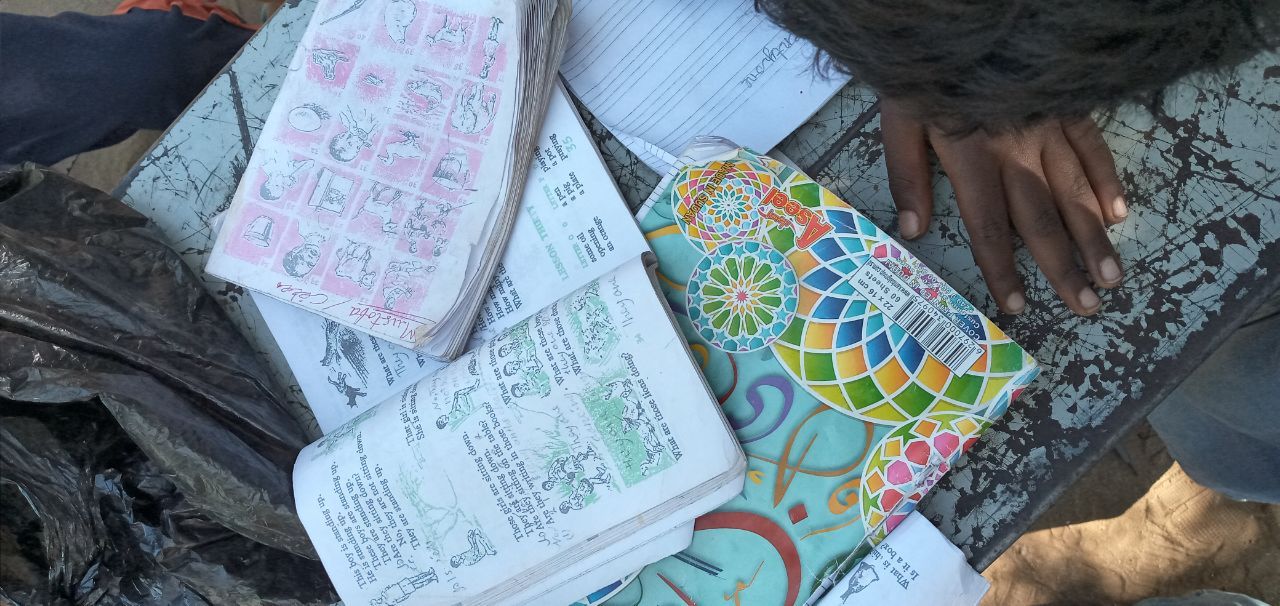
Displaced children learning in Gedarif schools. Source: Rania Elhassan Ahmed
Amid Sudan's turmoil, a glimmer of hope emerges. Children, teenagers, and young people have embraced this darkness with a pursuit of light. The closure of schools and universities has become an unexpected opportunity for the blossoming of new talents and interests. In the stillness of upheaval, they seek solace in hobbies and skills, discovering a distraction that nurtures their minds and souls in the quietude of upheaval, and shields their tender souls from the harsh realities of war.
